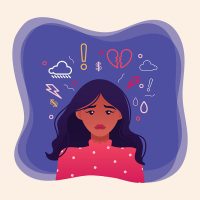Treatment Options For Oppositional-Defiant Disorder
Published on August 24th, 2018
Updated on January 8th, 2024

Oppositional defiance disorder (ODD) is a disorder in a which a child exhibits consistently bad behavior. This bad behavior has an effect on the child’s development. It also affects the child’s peers, parents and teachers.
A child with ODD exhibits unhealthy coping strategies for stress. This may include outbursts of rage, tantrums, or acts of resentment toward parents, teachers and peers. A child with ODD will show signs of defiance toward authority figures, and a lack of respect for the personal boundaries of peers.
A case of ODD is a challenge for the child, along with his or her parents, teachers, guardians and caretakers. Raising a child with ODD is difficult and frustrating, and causes a great deal of stress and tension for all parties involved.
Sponsored by

Choose a therapist to work with and start healing with 20% off from BetterHelp.
Click HereFortunately, with effective treatment and intervention, it is possible to recover from a condition of ODD. Treatment involves intensive, long-term therapy with both the child and parents or guardian of the child.
Treatment Options Available to a Child with ODD
Untreated cases of ODD are at high risk of developing into conduct disorder and antisocial personality disorder. A case of undiagnosed ODD can carry with a child into adulthood. It will cause the child to be at increased risk of depression and criminal behavior.
For best results, a case of ODD must be treated early. There must be consistency in treatment, and it is best to involve the child, parents, teachers and other caregivers in the recovery plan.
The following treatment options have been found to be effective in the treatment of ODD:
Cognitive-Behavioral Therapy
Cognitive-behavioral therapy (CBT) helps a child understand what they are thinking and feeling, and how those thoughts and feelings lead to bad behavior. It teaches the child how to reflect on himself or herself to prevent behavioral outbursts.
CBT can help to teach the child proper anger management skills and social communication skills. CBT reduces impulse control while promoting problem-solving skills and self-reflection.
Family Therapy
Family therapy is an important part of treatment for a child with ODD. In family therapy, the parents (or guardians) work with the therapist to learn:
- Strategies to cope with the child’s condition
- Effective parenting styles
- How to show support toward their child.
- Effective punishment and reinforcement methods
- How an when to enforce consequences
- How and when to show praise
- How to guide the child’s emotional and cognitive development
- How to identify stressors and triggers at home and in school
- How to provide routine and structure at home and at school
- How to be patient during the tough times
- How to cope with their own feelings of frustration in a healthy way
- How to coordinate care with teachers, other caregivers and family members
Parent-Child Interaction Therapy
Parent-child interaction therapy (PCIT) teaches parents how to interact with the child in a healthy and supportive way. A therapist will use PCIT to teach the parent of a child with ODD how to:
- Provide consistency for the child
- Manage stress and frustration from dealing with the child
- Enforce rules and consequences in the home
- Work with teachers and other caretakers to coordinate care for the child
- Problem-solve for and with the child
- Show unconditional love and support toward child
- Provide the child with security and emotional support
Psychiatric Medications
Psychiatric medication is not used to treat ODD. Sometimes a provider may treat any co-occurring mental health disorders with medication. Treating the co-occurring mental health disorders helps to manage symptoms. This reduces behavioral and mental health challenges while in treatment.
Sponsored by

Find an affordable therapist online with 20% off from BetterHelp.
Click Here






Leave A Reply